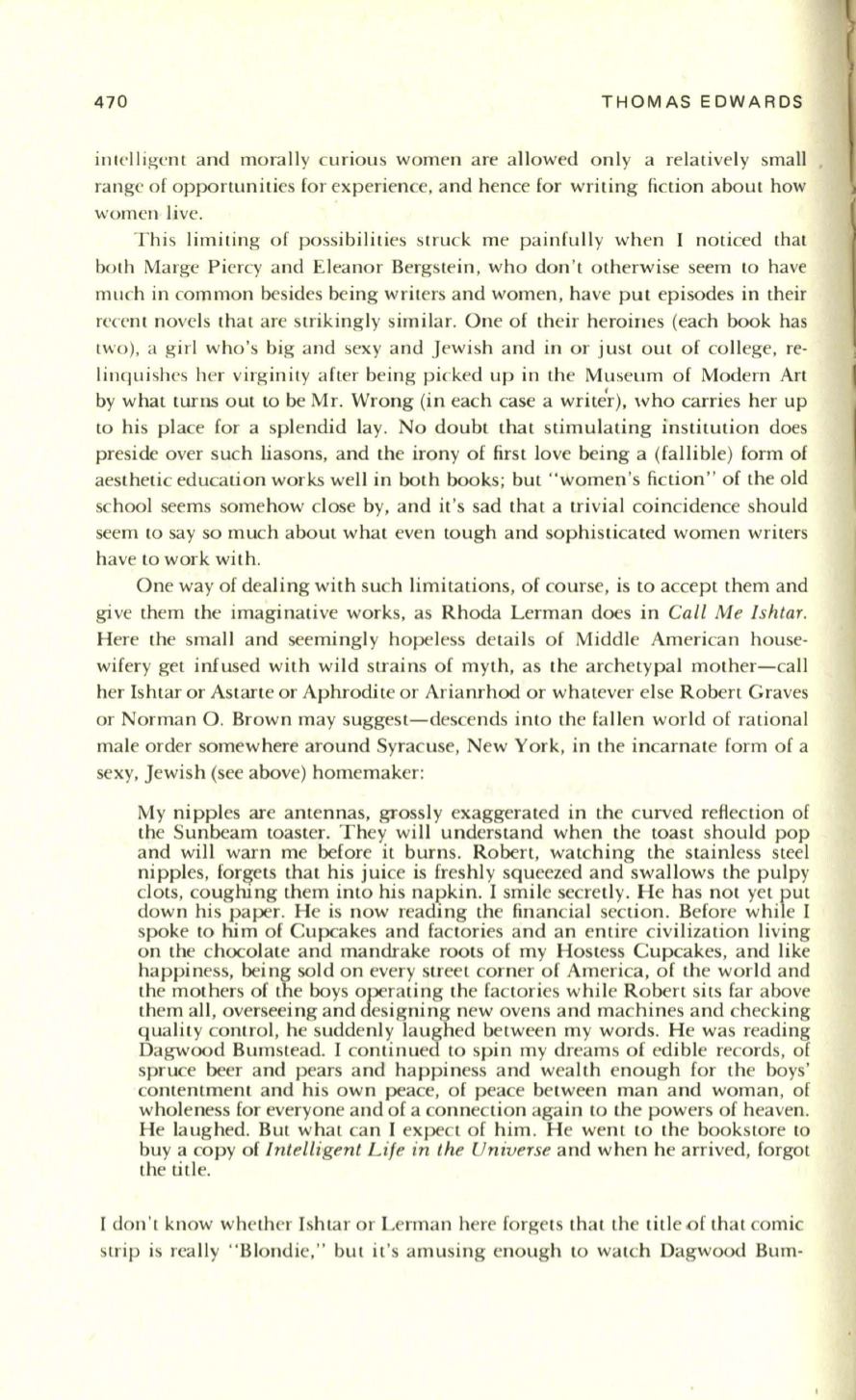
470
THOMAS EDWARDS
intelligent and morally curious women are allowed only a relatively small
range of opportunities for experience, and hence for writing fiction about how
women live.
This limiting of possibilities struck me painfully when I noticed that
both Marge Piercy and Eleanor Bergstein, who don't otherwise seem
to
have
much in common besides being writers and women, have put episodes in their
recrnt novels that are strikingly similar. One of their heroines (each book has
two), a girl who's big and sexy and Jewish and in or just out of college, re–
linquishes her virginity after being picked up in the Museum of Modern Art
by what turns out
to
be Mr. Wrong (in each case a writer), who carries her up
to
his place for a splendid lay. No doubt that stimulating institution does
preside over such liasons, and the irony of first love being a (fallible) form of
aesthetic education works well in both books; but "women's fiction" of the old
school seems somehow close by, and it's sad that a trivial coincidence should
seem
to
say so much about what even tough and sophisticated women writers
have
to
work with.
One way of dealing with such limitations, of course, is to accept them and
give them the imaginative works, as Rhoda Lerman does in
Call Me Ishtar.
Here the small and seemingly hopeless details of Middle American house–
wifery get infused with wild strains of myth, as the archetypal mother-call
her Ishtar or Astarte or Aphrodite or Arianrhod or whatever else Robert Graves
or Norman O. Brown may suggest-descends into the fallen world of rational
male order somewhere around Syracuse, New York, in the incarnate form of a
sexy, Jewish (see above) homemaker:
My nipples are antennas, grossly exaggerated in the curved reflection of
the Sunbeam toaster. They will understand when the toast should pop
and will warn me before it burns. Robert, watching the stainless steel
nipples, forgets that his juice is freshly squeezed and swallows the pulpy
clots, coughing them into his napkin. I smile secretly. He has not yet put
down his paper. He is now reading the financial section. Before while I
spoke to him of Cupcakes and factories and an entire civilization living
on the chocolate and mandrake roots of my Hostess Cupcakes, and like
happiness, being sold on every street corner of America, of the world and
the mothers of the boys operating the factories while Robert sits far above
them all, overseeing and designing new ovens and machines and checking
quality control, he suddenly laughed between my words. He was reading
Dagwood Bumstead. I continued to spin my dreams of edible records, of
spruce beer and pears and happiness and wealth enough for the boys'
contentment and his own peace, of peace between man and woman, of
wholeness for everyone and of a connection again to the powers of heaven.
He laughed. But what can I expect of him. He went to the bookstore
to
buy a copy of
Intelligent Life in the Universe
and when he arrived, forgot
the title.
I don 't know whether Ishtar or Lerman here forgets that the title.of that comic
strip is really "Blondie," but it's amusing enough to watch Dagwood Bum-


